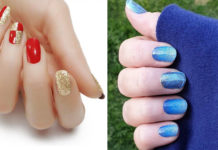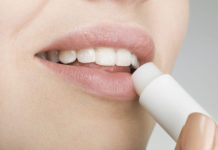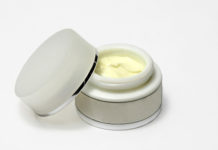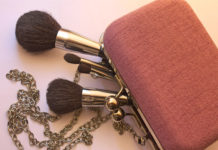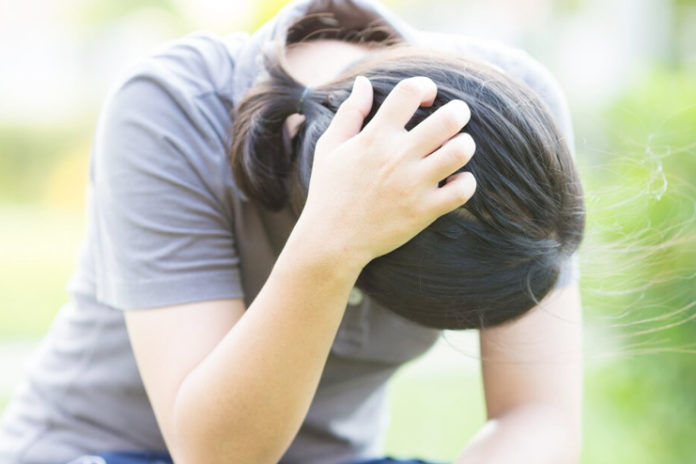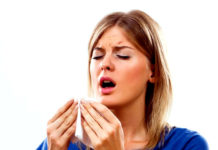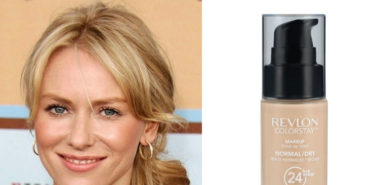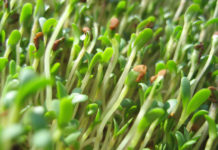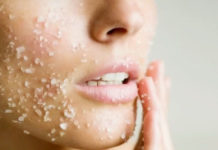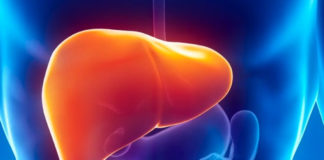Fungus or fungal infections can wreak havoc on any part of your body, that is including – the scalp fungus, the feet fungus, skin fungus, etc. It can be a comfortable breeding ground for the fungus. An infection can easily develop as well as ruin the skin and peace of mind.
What is Scalp Fungus?
Scalp fungus or fungal hair is basically a scalp infection, that is caused because of the mold-like fungi known to be ‘Dermatophytes’. This condition also known to be referred as tinea capitis or scalp ringworm. The fungi, originates at the scalp and not on the hair. Scalp fungus or fungus hair is very persistent and can also last for many several months or even years. Scalp fungus, is also known to be contagious which basically means that an infected person can pass it through to others by any contaminated objects or even direct contact.
Mostly a dirty scalp that have oil, pollutants, as well as gets accumulated with any kind of dead cells can get easily attracted to the fungus. Among all the various fungi, ringworm is considered to be common fungus that can affect the scalp as well as the hair. The scalp tends to become itchy, dry, and flaky. The effects of all these commercially available products mostly do not last much long, and along the process, some of them do make the hair very dry and frizzy. It is also better to opt for the home remedies under the circumstances.
So below are some, do-at-home simple solutions that can help to treat all the infection and make the scalp and hair healthy. Before that, let us look at all the causes and symptoms of the growth of hair fungus.
Causes of Scalp Fungus?
 Among the most common ways that you get into a contact of fungal infection is mostly from the pets. They mostly carry these type of fungus on their bodies. You might also get into contact with the infectionfrom another infected person by sharing certain items like scarves, hats, combs, etc with them. Once when the fungus get settled on the scalp, it immediately starts to damage out the outer layer of the skin as well as your hair. Here are some of the symptoms that are seen in the hair fungal infection:
Among the most common ways that you get into a contact of fungal infection is mostly from the pets. They mostly carry these type of fungus on their bodies. You might also get into contact with the infectionfrom another infected person by sharing certain items like scarves, hats, combs, etc with them. Once when the fungus get settled on the scalp, it immediately starts to damage out the outer layer of the skin as well as your hair. Here are some of the symptoms that are seen in the hair fungal infection:
a. Severe itching
b. Fragile hair that falls of easily
c. Patches on the scaly skin on scalp
d. Tenderness of scalp
It is very important for all of us to take proper care of your hair and scalp to treat infection and avoid scalp fungus in future.
Scalp Fungus Signs And Symptoms
The fungi that causes the hair infection mainly grow and spreads in warm moist areas. So the people who have poor hygiene and live in the places that have hot climates can be more prone to developing these scalp conditions. Scalp fungus is not considered as any kind of medical emergency, although there are many cases where the complications increased because of severe infections.
Natural Home Remedies For Scalp Fungus Treatment
There is nothing better than home remedies or natural remedies, to the treatment for scalp fungus or even fungus like infections on your skin and hair. They are the most valuable as well as natural way to get healthy skin and hair. So here, are some of the scalp fungus remedies treatment that you must know to make your scalp, fungus free:
1. Apple Cider Vinegar
a. One cup of apple cider vinegar
b. Four cups of water
Method:
a. First add a cup of vinegar to water and mix properly.
b. Then rinse the hair with the mix before you apply a shampoo.
c. Try to repeat this process twice or thrice in a week.
Why It Work:
Apple cider vinegar have potent anti fungal compound, which can help to kill fungus as well as treat infections. The presence of antioxidants can help to aid in the speedy recovery of your skin.
2. Neem Oil
a. One teaspoon of neem oil
b. Two to three tablespoons of coconut oil
Method:
a. First mix neem oil and coconut oil.
b. Then apply this mixture on the scalp and hair.
c. Try to leave the oil overnight.
d. In the morning rinse the hair as well as scalp.
e. Try repeating this once in three days.
Why It Work:
The properties of antimicrobial in neem can also be used for many centuries in Ayurveda to treat infections. When it comes to fungus, neem oil can effectively kill the fungus and provide relief from itching as well as hair fall issues. The coconut oil can help to nourish your scalp and hair in the remedy.
3. Castor Oil
a. Castor oil
b. Cotton ball
Method:
a. First dip a cotton ball in the oil and apply it over the infected area.
b. Then let it sit for at least an hour. Slowly, rinse the hair thoroughly with some cool water.
c. After that try to blow dry your hair as fungus can grow rapidly in the wet surroundings and can even be contagious.
d. Try to apply this thrice in a week.
Why It Work:
Castor oil can be little sticky, but it can benefit for treating any kind of hair or scalp fungus. It also possesses many anti fungal properties that can help to kill the fungi. It is considered as a good skin conditioner and can help to provide relief from the symptoms of infection.
Caution:
While applying, remember to avoid touching directly with your hands to the infected area.
4. Garlic
a. Six garlic cloves
b. Five to six tablespoons of organic honey
Method:
a. First crush some garlic cloves and then let them sit on for about 10 to 15 minutes.
b. To it, add honey and mix them well.
c. Try to apply the mixture very generously on the scalp and massage for at least a minute or two.
d. Then leave the pack on the hair for about 10 minutes and slowly rinse with some water.
e. Later rinse with shampoo to remove all the pack from the hair thoroughly.
f. Try to use the pack on the scalp twice in a week.
Why It Work:
Garlic have a very strong anti fungal compound that is known as allicin. This compound can help to eliminate the infection, especially Candida. The honey can provide aid to the garlic in the anti fungal activity. It also help to soothe the skin and reduce swelling with the anti-inflammatory properties.
Caution:
Garlic sometimes can sting a little if you are having a sensitive skin. On the other hand, honey can help to soothe the skin. But you can even dilute this mix with milk.
5. Listerine
a. Half cup of Listerine (original)
b. Half cup of lukewarm water
Method:
a. First try to rinse the hair with shampoo thoroughly.
b. Then remove all the excess water from the hair.
c. In a bowl, mix Listerine with warm water, and pour it over the scalp.
d. Gently massage the scalp for a minute or two.
e. Later rinse your hair with some lukewarm water first and then with some cool water.
f. Air dry or even blow dry your hair.
g. Try repeating this once in every week
Why It Work:
This is a very common used product that have a wide range of antimicrobial properties. The key components in it like; eucalyptol, thymol, and menthol can help to kill the fungus as well as treat the infection and symptoms associated with it.
Caution:
If you are having open sores or even irritation spots on the scalp, then do not use this remedy. Listerine can always sting or burn as well as irritate the sores much further.
6. Lemon
a. Three to four tablespoons of lemon juice
b. One cup of lukewarm water
Method:
a. Add some lemon juice to a cup of warm water and use it as a final rinse after washing the hair.
b. Later follow it up with some cool water rinse to close all the pores on the scalp.
c. Try to use this juice once in a week.
Why It Work:
The presence of acids in the lemon can act as an antifungal agent for your hair fungus. Apart from it treating the infection, lemon can also help to kill other microorganisms which may be causing the damage to the scalp as well as hair. It can even impart a natural shine to the hair.
7. Olive Oil
a. Virgin olive oil
Method:
a. First apply some olive oil on the scalp as well as hair.
b. Then massage it for few minutes and leave these oil on for about few hours or overnight.
c. Later rinse the hair slowly the next morning.
d. Try repeating this twice in a week.
Why It Work:
Olive oil have a very wide range of nourishing as well as healing compounds, like vitamins and monounsaturated fatty acids. These compounds can help to provide relief from the itching, dryness, as well as flakiness on the scalp. Olive oil also have antifungal and antibacterial properties which can help to treat the scalp infection.
8. Tea Tree Oil
a. One fourth cup of aloe vera gel
b. 10 to 15 drops of tea tree oil
Method:
a. First mix tea tree oil with aloe vera gel.
b. Then apply this mix on your scalp and massage it for a minute.
c. Let the oil and aloe mix sit for about 30 to 45 minutes.
d. Later rinse the hair as usual.
e. Try to do this twice in a week.
Why It Work:
Tea tree oil is considered as one of the best remedies to treat the hair fungus. ‘Terpenes’, a group of hydrocarbons that is found in the tea tree oil, are hugely responsible for any antimicrobial activity against bacteria as well as fungi. The itchiness and dryness also gets relieved.
9. Papaya
a. Two to three raw pieces of papaya
Method:
a. First try mash some papaya pieces and apply them on the affected areas.
b. Then let it dry for about 15 to 20 minutes.
c. Normally try rinse your hair.
d. Try applying this once in every week.
Why It Work:
Papaya is can be used to extract antifungal enzyme that is known as chitinase. Chitinase can degrade the fungal cell wall, that causes the death. The commercial use of papaya can also be utilized at the home to treat the hair fungus by simply applying the pulp of the fruit on the scalp.
10. Baking Soda
a. One cup of lukewarm water
b. Few drops of rosemary oil
c. One tablespoon of baking soda
Method:
a. First add some baking soda, rosemary oil in the warm water and mix them properly.
b. Apply it directly on your scalp and gently massage for few minutes.
c. Leave the paste on for five to 10 minutes and rinsing later.
d. Try to use this remedy once in a week.
Why It Work:
Superficial infections, like scalp and nails, can easily be treated with some baking soda. The antifungal properties is an effective treatment against all the different types of fungi. It can help to soothe out the dry and itchy skin that is caused by infection.
11. Coconut Oil
a. Virgin coconut oil
Method:
a. Apply coconut oil properly on your scalp as well as hair.
b. Then massage it for a couple of minutes, leave the oil for overnight.
c. Rinse the hair as usual in morning.
d. Try to repeat it twice or thrice in a week.
Why It Work:
Coconut oil have many fatty acids, like lauric acid, which have the presence of many antimicrobial properties. By applying it everyday on your scalp can help to treat all the fungal infection in just few weeks. Coconut oil can also help to nourish and moisturize the skin, and this can make your hair much more healthier. It can also protect from damage
How To Treat Scalp Fungus Dandruff?
With the above natural home remedies you can get rid of scalp fungus dandruff and can also help to achieve a beautiful lustrous as well as shiny hair, without any more of medications.
Few Tips To Get Rid Of Scalp Fungus
 a. First, one of the most obvious signs that you might have been infected with a scalp fungus is with an extreme itch as well as feeling of the urgency to scratch your scalp. When this seems to happen, then try to wash your hair thoroughly and dry it off well. If still the itchiness doesn’t go away, it is likely that the scalp is hosting fungus.
a. First, one of the most obvious signs that you might have been infected with a scalp fungus is with an extreme itch as well as feeling of the urgency to scratch your scalp. When this seems to happen, then try to wash your hair thoroughly and dry it off well. If still the itchiness doesn’t go away, it is likely that the scalp is hosting fungus.
b. Second, first and foremost see a doctor immediately and get the scalp fungus prescription. If still the itchiness as well as fungus don’t go away after two to three days, ask the doctor for medications. Drugs may help to kill the fungus in a very short time. For some drugs might seem to be more effective than the home remedies.
c. Remember to drink plenty of natural juices for the duration of scalp fungus, and along with its treatments. Try to prepare carrots, cucumber, celery and aloe drinks. Take the supplements of; B complex, vitamin E and Folic Acid. These vitamins can help to fight the fungus as well as reduce the itch.




